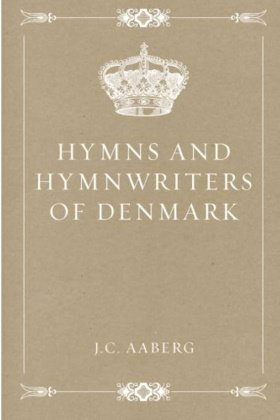father. He learned the trade of linen and damask weaving, and established a modest business of his own at Slangerup, a town in the northern part of Sjælland and close to the famous royal castle of Frederiksborg. At the age of thirty-eight he married a young peasant girl, Karen Sørendatter, and built a modest but eminently respectable home. In this home, Thomas Kingo, the future
hymnwriter, was born December 15, 1634.
It was an unusually cold and unfriendly world that greeted the advent of the coming poet. The winter of his birth was long remembered as one of the hardest
ever experienced in Denmark. The country’s unsuccessful participation in the Thirty Year’s War had brought on a depression that threatened its very existence as a nation; and a terrible pestilence followed by new wars increased and prolonged the general misery, making the years of Kingo’s childhood and youth
one of the darkest periods in Danish history.
But although these conditions brought sorrow and ruin to thousands, even among
the wealthy, the humble home of the Kingos somehow managed to survive.
Beneath its roof industry and frugality worked hand in hand with piety and mutual love to brave the storms that wrecked so many and apparently far
stronger establishments. Kingo always speaks with the greatest respect and gratitude of his “poor but honest parents”. In a poetic description of his childhood years he vividly recalls their indulgent kindness to him.
I took my pilgrim staff in hand
Ere I attempted talking;
I had scarce left my swaddling-band
Before they set me walking.
They coached me onward with a smile
And suited me when tearful.
One step was farther than a mile,
For I was small and fearful.
But discipline was not forgotten. Parents in those days usually kept the rod close to the apple, often too close. And Kingo’s parents, despite their kindness, made no exception to the rule. He was a lively, headstrong boy in need of a firm hand, and the hand was not wanting.
As a child my daily bread
I with rod and penance had,
he wrote later, adding that the fruits of that chastisement are now sweet to him.
Nor do his parents ever appear to have treated him with the cold, almost loveless austerity that so many elders frequently felt it their duty to adopt toward their children. Their discipline was tempered by kindness and an earnest Christian faith. Although Hans Kingo seems to some extent to have been influenced by the
strict Presbyterianism of his Scotch forebears, he does not appear, like so many followers of that stern faith, to have taught his children to believe in God as the strict judge rather than as the loving Father of Jesus Christ. In his later years the son at least gives us an attractive picture of his childhood faith:
I gratefully remember
God’s loving care for me
Since from my nursery chamber
I toddled fearfully.
I lived contented in His care
And trusted in His children’s prayer.
These bright years of his happy childhood were somewhat darkened, however, when, at the age of six, he entered the Danish and, two years later, the Latin school of his home town. Nothing could be more unsuited for a child of tender
years than the average school of those days. The curriculum was meager, the teaching poor and the discipline cruel. Every day saw its whipping scenes. For a day’s unexplained absence the punishment for the smaller boys was three lashes
on their bare seats and for the larger an equal number on their bare backs. For graver offences up to twenty lashes might be administered. On entering the Latin school every boy had to adopt a new language. Only Latin could be spoken within its classical confines; and woe be to the tike who so far forgot himself as to speak a word in the native tongue anywhere upon the school premises. The only way anyone, discovered to have perpetrated such a crime, could escape the
severest punishment was to report another culprit guilty of the same offense.
Under such conditions one cannot wonder that Kingo complains:
The daily round from home to school
Was often hard and weary.
It did my youthful ardour cool
And made my childhood dreary.
At the age of fifteen Kingo, for reasons now unknown, was transferred from the
school of his home town to that at the neighboring city of Hillerød. Here, on account of his outstanding ability, he was accepted into the home of his new rector, Albert Bartholin, a young man of distinguished family and conspicuous personal endowments.

























